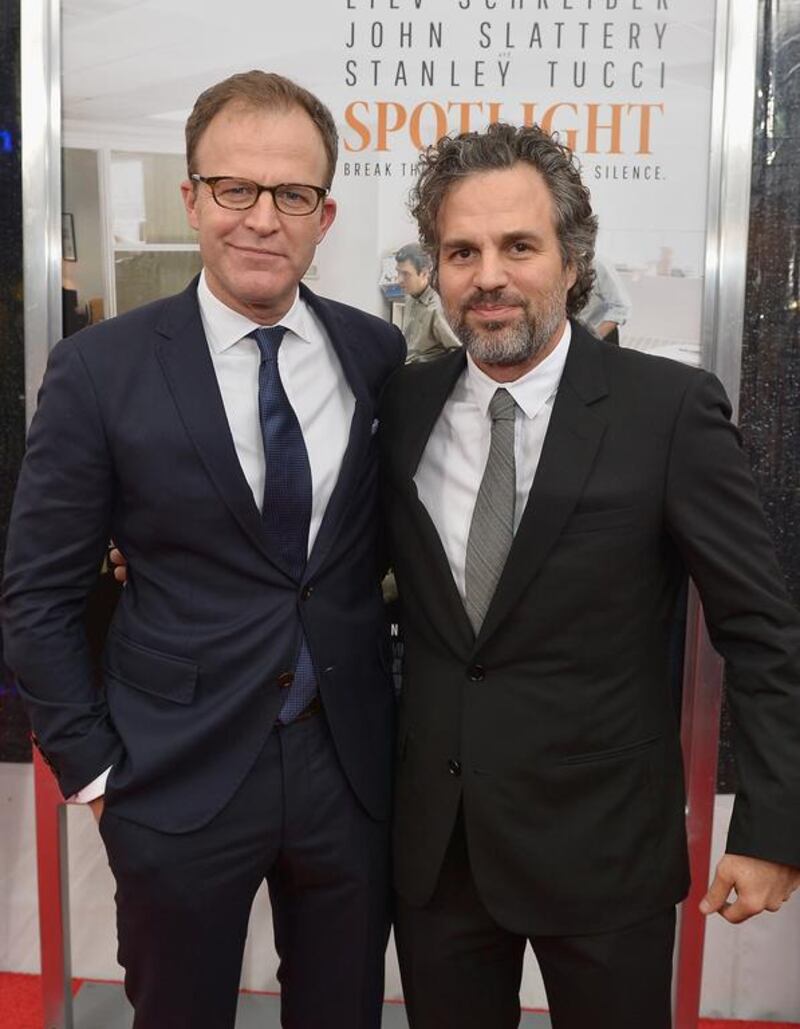Hailed by many as the best film about journalism since All the President's Men, director/co-writer Tom McCarthy's Spotlight grippingly and truthfully dramatises how a team of investigative reporters exposed decades of child abuse by Catholic priests in Massachusetts.
The Boston Globe's Spotlight team published the first story on January 6, 2002 – but its impact was felt internationally.
The movie is a cris de coeur for a kind of local investigative reporting that is dying out, as newspaper publishers trim budgets and lay off staff – in many places, it is already dead.
“I might be wrong but I don’t think the general public fully understands just how dire this situation is, and how fundamental to our individual democracies a strong free press is,” says McCarthy.
He and fellow writer Josh Singer felt the best way to highlight the issue was to show "by example, in the extraordinary work done by the reporters and editors at the Boston Globe, and the courage of the survivors".
Finding the story behind the story was a "struggle" however, because of the "sprawling, massive and epic" nature of the investigation. They talked to the Spotlight reporters, then interviewed "lawyers, educators, survivors, former reporters, former publishers, former editors – anyone that could provide context", says McCarthy.
Working out which characters were essential to telling such a complex story meant hard decisions about leaving out many other real-life people who had been involved.
“That was tricky,” McCarthy admits. “But we had to find our movie.”
In meeting survivors, he says he discovered an unexpected duality to the abuse they endured – it was physical, but also spiritual. The perpetrators were priests, “therefore [the victims] felt they had nowhere to turn any more. And for some of these people, religion counts for a lot, and they felt completely abandoned.”
Some turned to drink and drugs, others committed suicide.
“It completely altered their lives,” says McCarthy. “And many people who did survive struggle with this.”
The power of the church in Boston, which has a large Irish-Catholic community, looms over everyone in the film. In one telling scene, Marty Baron (played by Liev Schreiber) is obliged to have an audience with the Cardinal after being appointed editor at the Globe.
“That doesn’t happen in a lot of cities,” says McCarthy. “But in Boston that’s a ritual.”
While visiting the city and driving around the neighbourhoods affected by the abuse with Spotlight reporter Michael Rezendes (played by Mark Ruffalo), the film-makers discovered that "on almost every corner, there was a church. Boston is a beautiful city," says McCarthy, "it has a lot of low architecture, and if you're up high enough, all you see is steeples. So you just get a sense of the power of the Church, of its presence, physically."
Many of the churches he saw in 2013-14 had been closed as a consequence of the archdiocese of Boston having to pay compensation to victims of the abuse.
Ruffalo, who like McCarthy is a Catholic, believes this was also a result of the Church losing credibility after the story was revealed – people just stopped going.
As the film reveals, however, it wasn’t only church leaders who failed the young victims.
"It was the Boston Globe, it was the police, it was the legislative body, it was the politicians, it was the influential families of Boston, it was other media sources, it was schools, it was administrations – all of them had a hand, or turned a blind eye, at one point or another," says Ruffalo.
The Boston Globe could have started to investigate sooner, but there appears to have been a combination of human error – "Sometimes you get it, sometimes you miss it," says McCarthy – and pressure from the editors of the time, who thought they had run enough stories on the Church.
"Apparently it wasn't enough, because Spotlight took that to a whole other level," adds the director.
Hopes have been raised that the culture within the Catholic Church that allowed the abuse to happen and persist will be tackled by Pope Francis, and McCarthy admits to being intrigued by him. Nevertheless, he is sceptical.
“I remain, after making this movie, pessimistic,” he says. “I was raised Catholic, my family’s very Catholic, I understand it to some extent. But words are one thing, actions are another.”
artslife@thenational.ae





